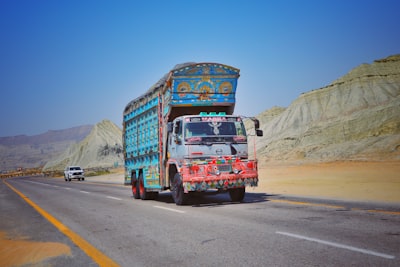The Deadly Balochistan Bus Attack: What It Reveals About Pakistan's Ongoing Insurgency
On July 10, 2025, the remote province of Balochistan, Pakistan, was shaken once again by gruesome violence. Armed men kidnapped and brutally killed nine bus passengers, highlighting a disturbing trend of attacks in the region. While the immediate event is heartbreaking, it also opens a timely conversation about ethnic tensions, separatist violence, insurgency, and the underreported struggles of Balochistan’s people.
Why Is Balochistan Prone to Militancy and Violence?
Balochistan insurgency has been simmering for decades, rooted in complex grievances around ethnic identity, resource control, and political autonomy. Baloch nationalists and groups like the Baloch Liberation Army (BLA) claim that Islamabad exploits the area’s vast natural resources—such as gas, coal, and minerals—without benefiting the local population.
Key Factors Fueling the Unrest:
- Resource Exploitation: Accusations that Balochistan's gas, minerals, and other wealth are used primarily to benefit Punjab and central Pakistan.
- Ethnic Discrimination: Baloch communities often feel marginalized, underrepresented in government, and subject to heavy-handed security crackdowns.
- Geopolitical Complexity: Bordering Afghanistan and Iran, Balochistan is a hotspot for smuggling, cross-border militancy, and competing foreign interests.
Who Are the Baloch Separatists and What Do They Want?
The Baloch Liberation Army and related groups are considered separatist militants seeking greater autonomy or outright independence for Balochistan. Their tactics have included attacks on infrastructure, security forces, and, tragically, civilians—particularly targeting those they perceive as outsiders or symbols of the central government’s presence.
Common Search Questions:
- What is the BLA and what are their demands?
- How does the conflict affect Pakistan’s development projects?
- Why are Punjabis frequently targeted in such attacks?
The Impact of Ethnic Violence: Why Are Travelers Targeted?
Attacks like the recent bus massacre often involve militants stopping vehicles to check passengers’ identification. Those identified as coming from Punjab, Pakistan’s most populous province, can be singled out as symbols of perceived oppression. The aim is both to intimidate and send a message to the central government.
Consequences Include:
- Growing fear among travelers on interprovincial routes
- Deterioration of trust between ethnic groups
- Stunted economic growth and investment in the region
Can Stability Return to Balochistan? Prospects and Solutions
Resolving the Balochistan conflict requires multifaceted approaches:
- Dialogue and Inclusion: Genuine conversations between Baloch groups and the central government
- Fair Development: Ensuring local communities benefit from resource extraction
- Addressing Human Rights: Reduced military crackdowns and respect for civil liberties
It also demands international attention, as ongoing violence in Balochistan impacts regional security and economic initiatives, including China’s Belt and Road projects.
Frequently Asked Questions (FAQ)
Q: Is Balochistan safe for travel?
A: Due to recurring attacks and military operations, travel to Balochistan, especially by road, is considered high-risk and is often discouraged by foreign governments.
Q: What is Balochistan’s significance to Pakistan?
A: Balochistan is Pakistan’s largest province by area, home to immense mineral resources and the Gwadar port, central to international trade routes.
Q: How is the Pakistani government addressing Balochistan’s issues?
A: The government claims to be investing in development, but critics argue more needs to be done, especially regarding local empowerment and security sector reforms.
Conclusion: Recognizing the Cost of Unresolved Grievances
The tragic bus killings in Balochistan are a sobering reminder of the urgent need for justice, inclusion, and sustainable peace in Pakistan’s southwest. As the region continues to grapple with militancy, ethnic strife, and underdevelopment, the world cannot ignore the lessons this conflict teaches about the importance of fair governance and addressing marginalized voices.
Stay informed about Balochistan and broader security issues in South Asia—awareness is a crucial step toward understanding and change.

Comments
No comments yet. Be the first to comment!